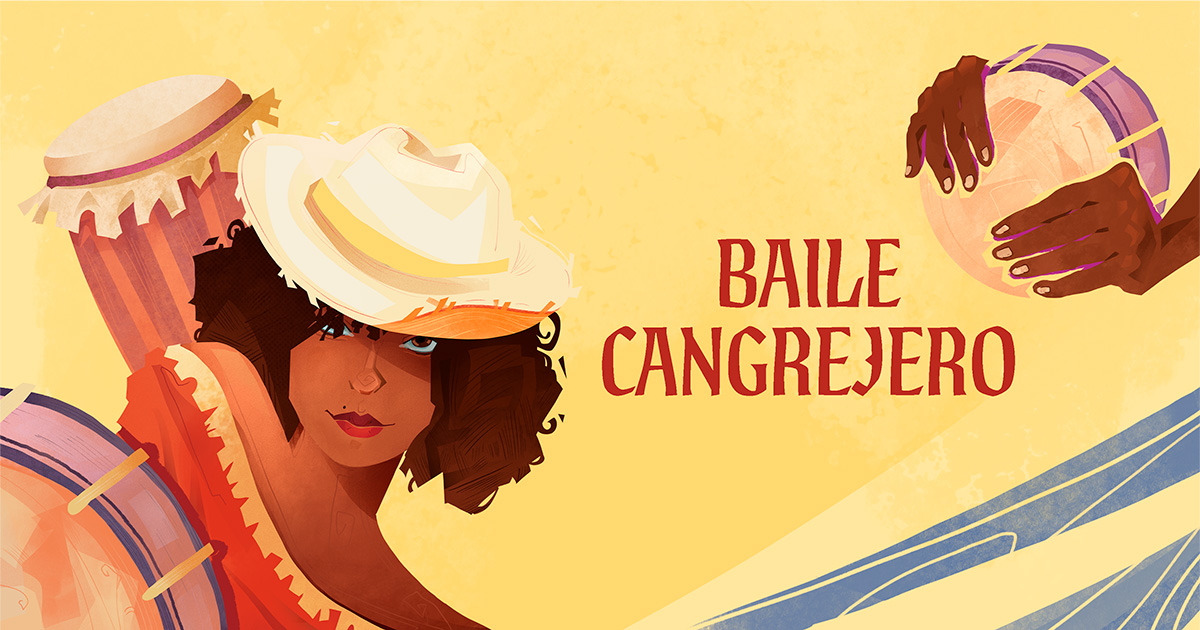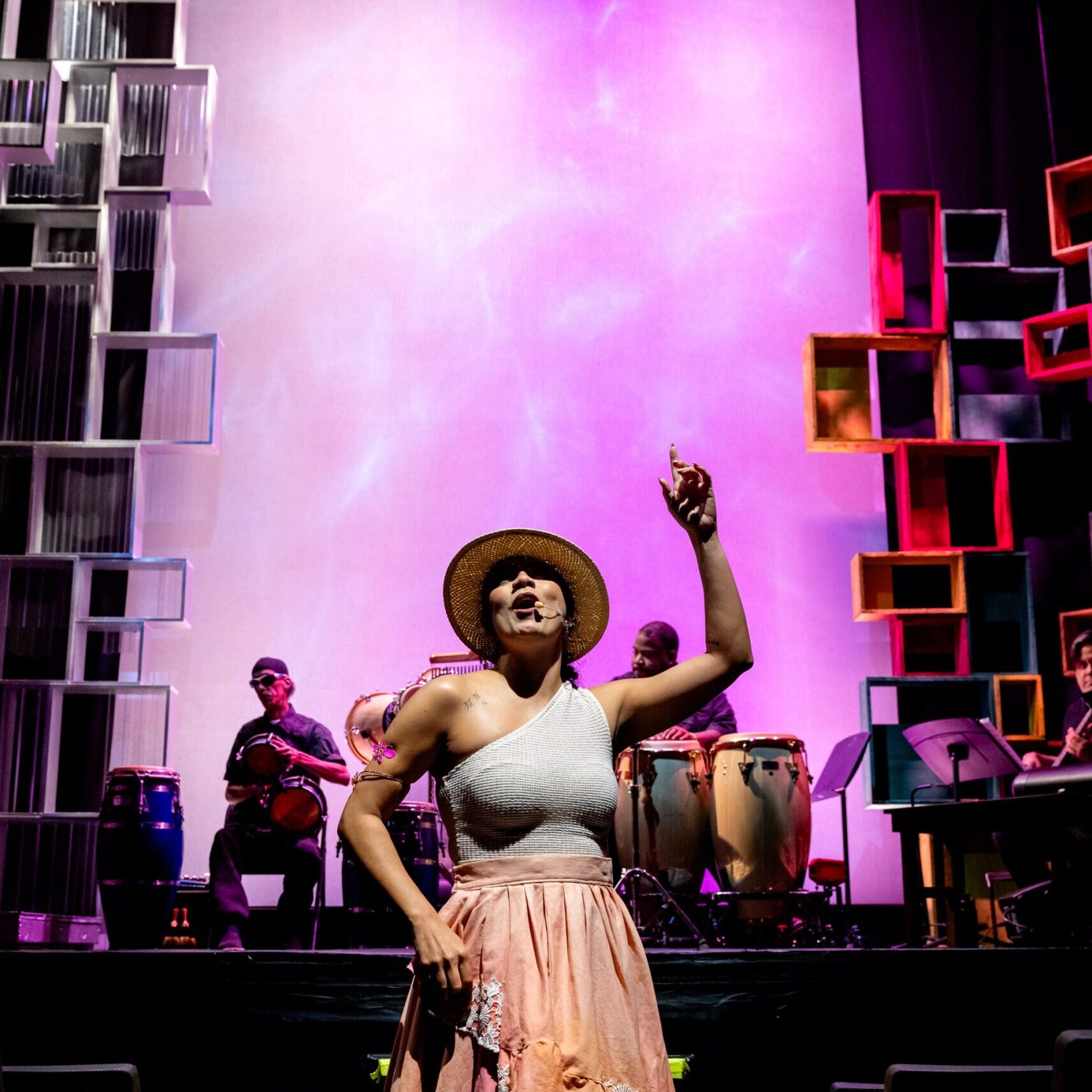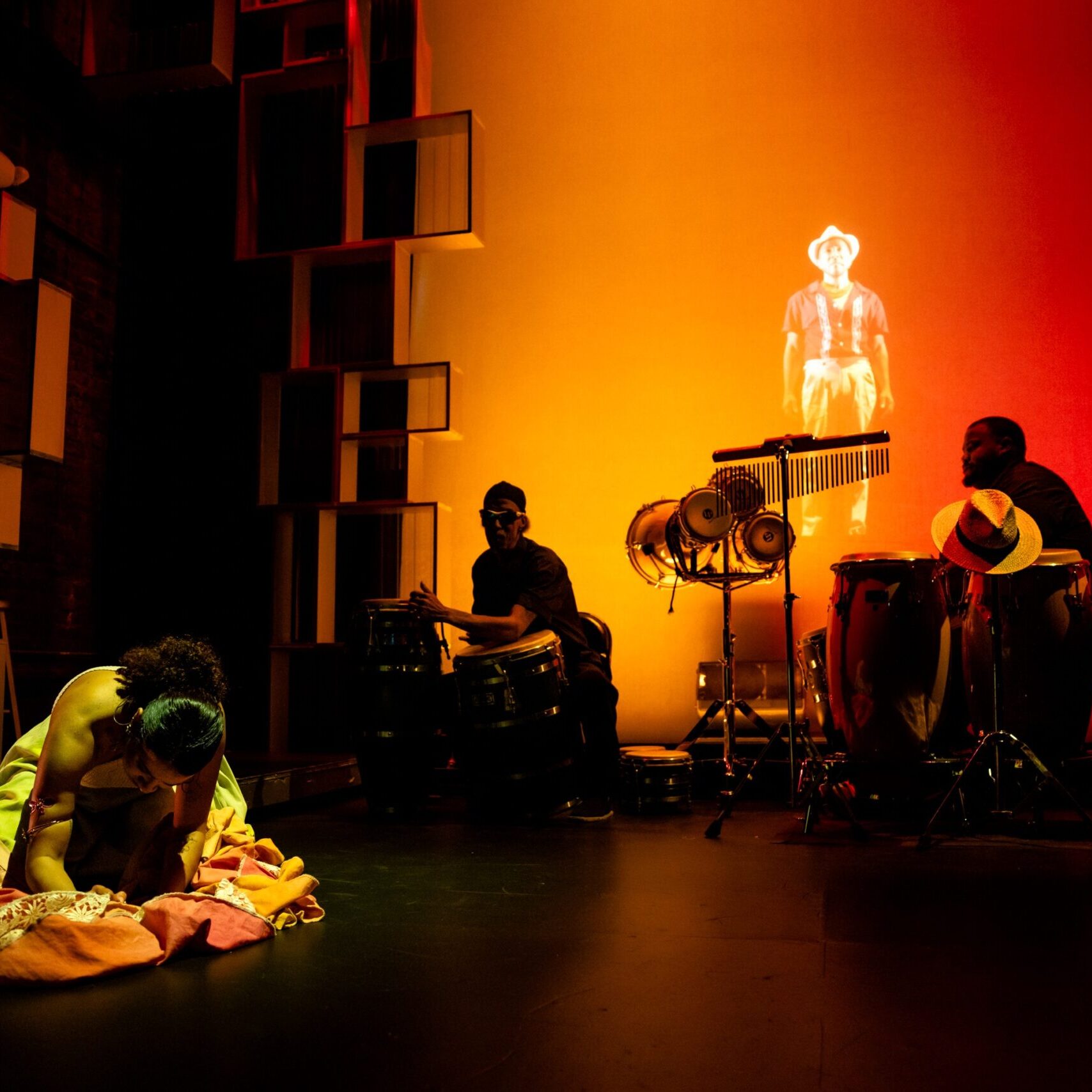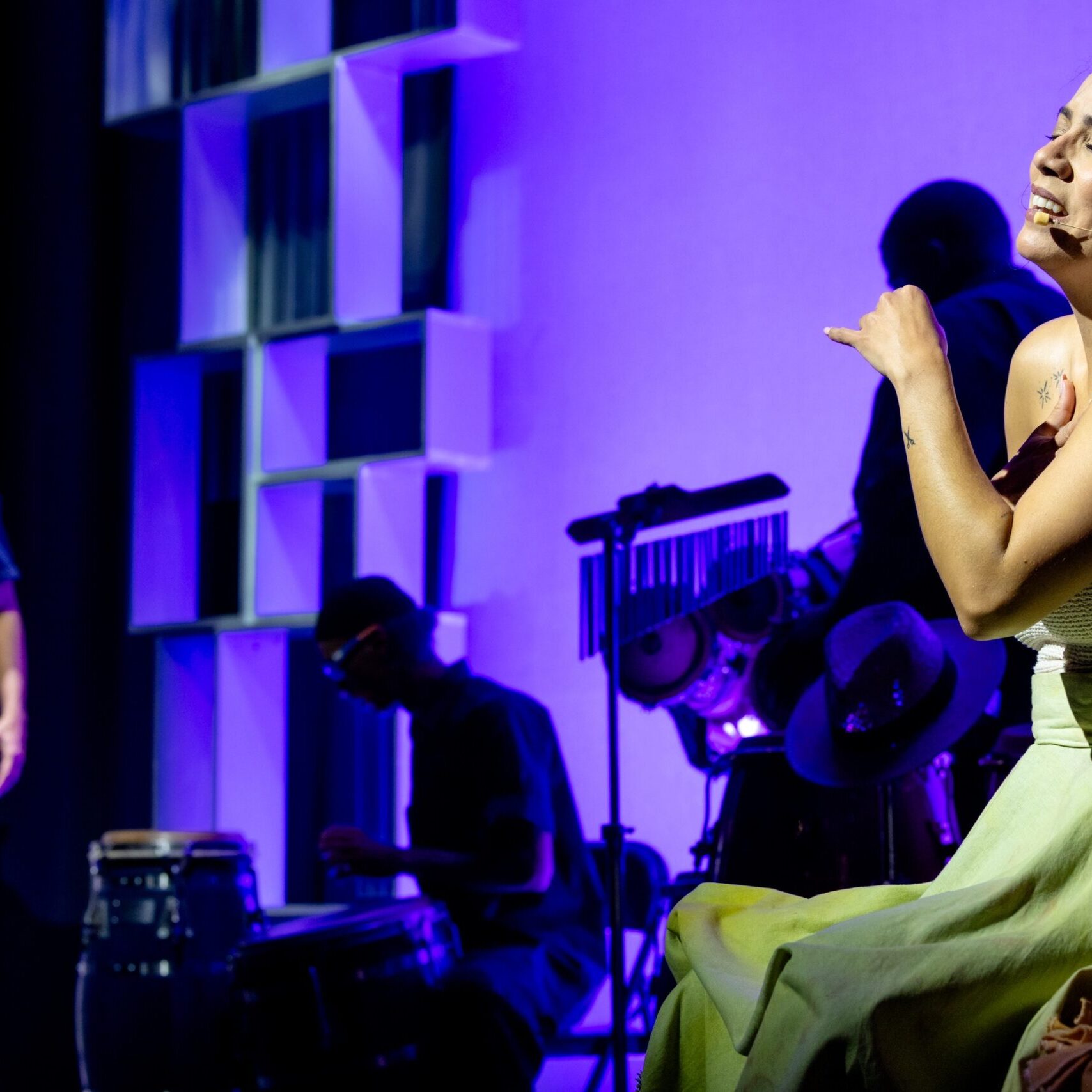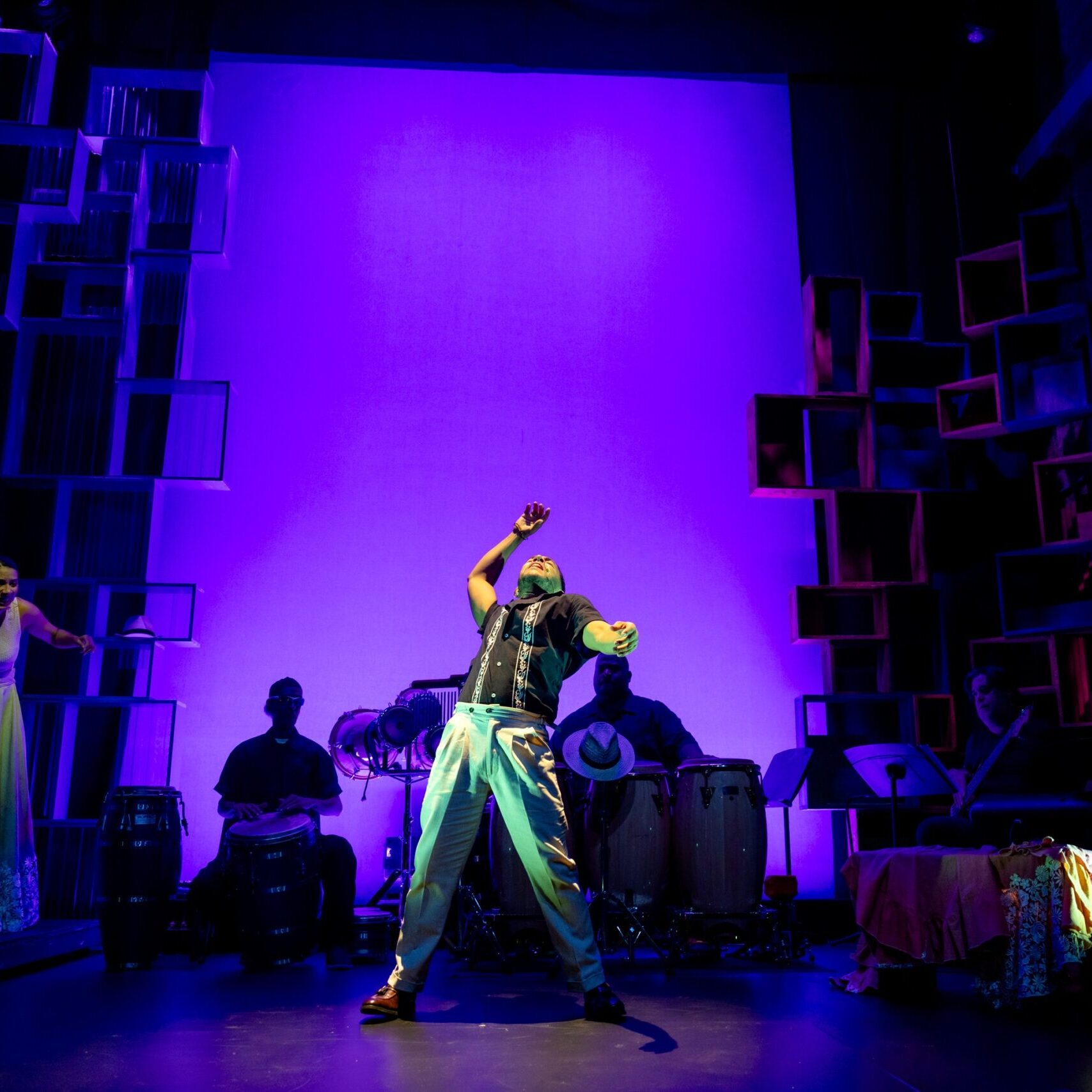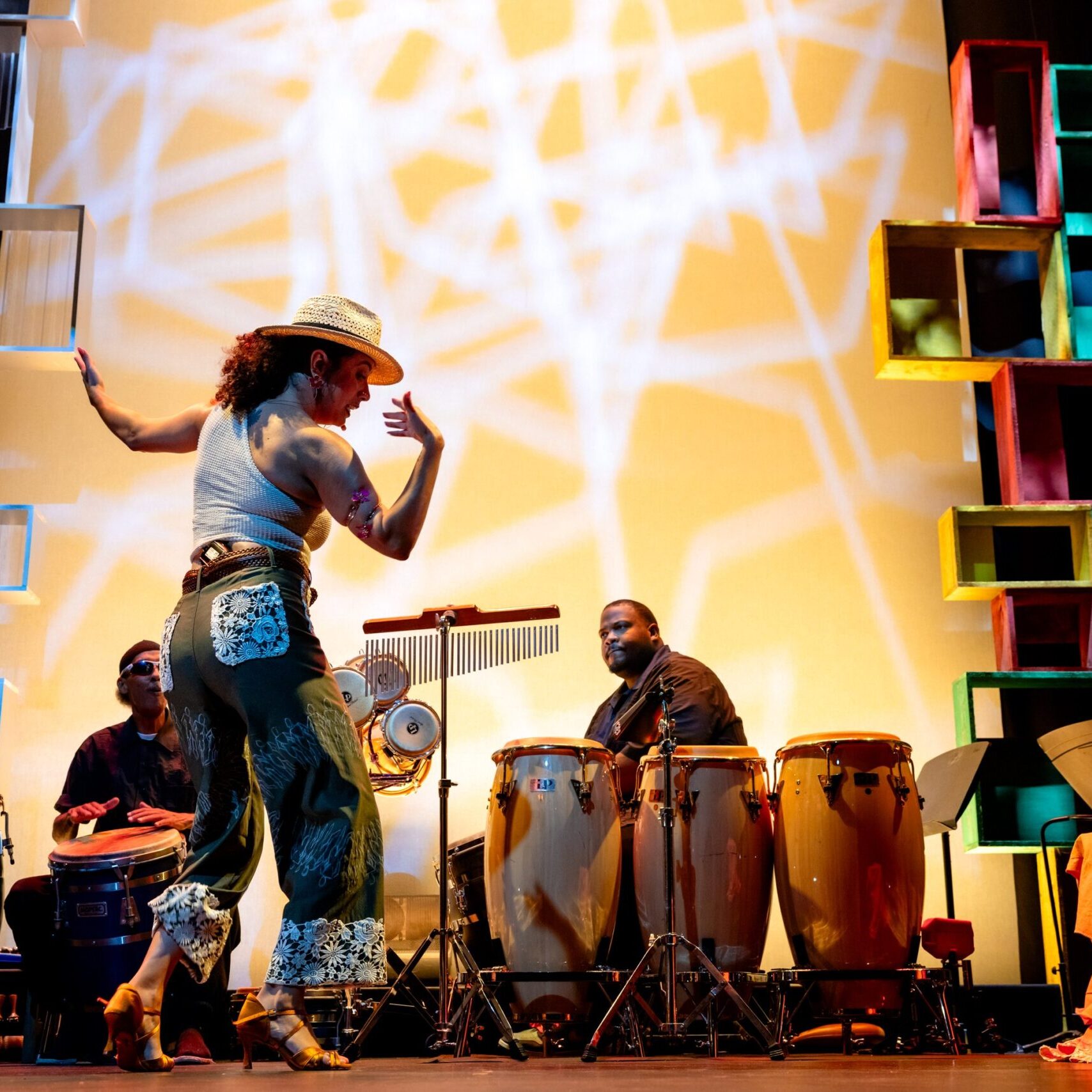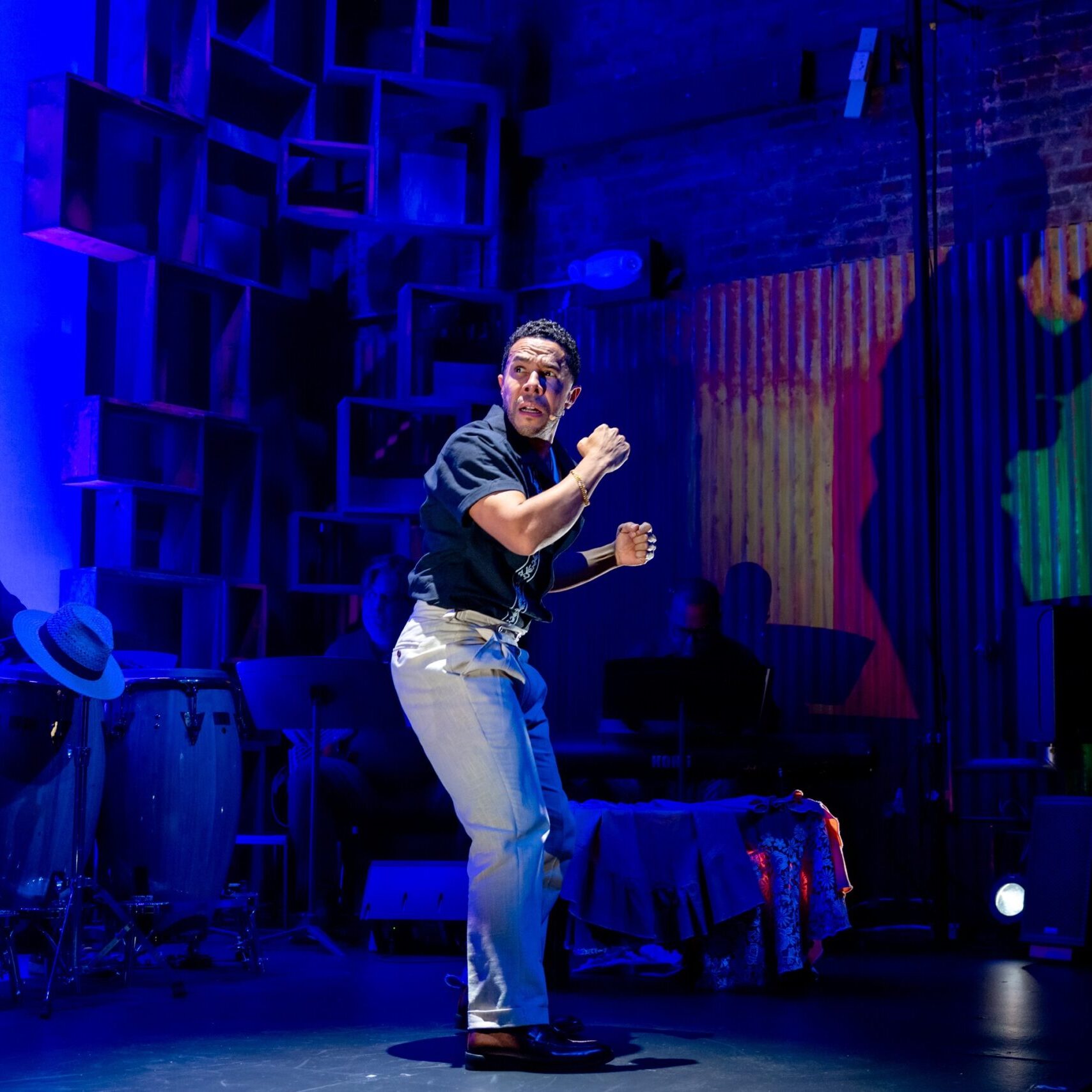
October 23-November 16, 2025
Puerto Rican Traveling Theater
304 W 47th Street
New York, NY 10036
A Celebration of All Things Afro-Caribbean!
Rooted in tradition yet boldly contemporary, Baile Cangrejero highlights deep connections across the rich and varied Afro-descendant musics, histories, and identities of Puerto Rico, Cuba, Dominican Republic, and Peru. This high-energy theatrical concert for all audiences is both an homage and an invitation to feel, move, and remember through rhythm and verse.
Baile Cangrejero is directed by the acclaimed Jorge B. Merced and stars award-winning actors Anna Malavé and Cedric Leiba Jr., along with a stellar music ensemble featuring Grammy-nominated percussionist Anthony Carrillo, Pregones/PRTT’s Musical Director Desmar Guevara, and Grammy winners Alvaro Benavides and Camilo Molina.
Performed in Spanish and English with Supertitles
Show duration: 75 minutes – no intermission
2025 Production Images
Featured Poems
Ay, ay, ay de la grifa negra by Julia de Burgos
Danza Negra by Luis Palés Matos
Baile Cangrejero by Fortunato Vizcarrondo
Enamorao by Fortunato Vizcarrondo
El Apellido by Nicolás Guillén
Loiza Aldea by Fortunato Vizcarrondo
Majestad Negra by Luis Palés Matos
Muerte en el Ring by Nicomedes Santa Cruz
Trópico Suelto by Manuel del Cabral
¿Y tu agüela, a’onde ejtá? by Fortunato Vizcarrondo
Event Details
Puerto Rican Traveling Theater
304 W 47th St, New York, NY 10036
(b/w 8th & 9th Avenues)
Trains # 1, C, E to 50th Street
Questions? Call us at 718-585-1202
October 23 – November 16, 2025
Thu. – Fri. 7:00 PM
Sat. 7:00 PM
Sat. & Sun. 3:00 PM Matinee
Special Weekday MatineesWed. Oct. 29, 11:00 AMWed. Nov. 5th, 11:00 AMWed. Nov. 12th, 11:00 AM
Acting Ensemble:
Cedric Leiba Jr.
Anna Malavé
Musical Ensemble:
Alvaro Benavides, Bass
Anthony Carrillo, Percussion
Desmar Guevara, Keyboard
Camilo Molina, Drums
Nelson Matthew Gonzalez, Percussion Substitute
Waldo Chavez, Bass Substitute
Director:
Jorge B. Merced
Assistant Director:
Veraalba Santa
Musical Director:
Desmar Guevara
Set Designer:
Omayra Garriga Casiano
Lighting Designer:
Emmanuel Delgado
Costume Designer:
Eliana Yost
Movement Consultant:
Milteri Tucker
Sound Consultant:
Franklin T. Leroux
Production Manager:
Jessica Moya
Stage Manager:
Brianna Guillén
Assistant Stage Manager:
Joyce Baez

The actors and stage managers employed in this production are members of Actors’ Equity Association, the union of professional actors and stage managers in the United States. This Theater operates under an Actors’ Equity Association Off-Broadway NYC-LOA.
Julia de Burgos (Puerto Rico, 1916-1953)
Manuel del Cabral (Dominican Republic, 1907-1999)
Nicolás Guillén (Cuba, 1902-1981)
Luis Palés Matos (Puerto Rico, 1899-1959)
Nicomedes Santa Cruz (Perú, 1925-1992)
Fortunato Vizcarrondo (Puerto Rico, 1896-1980)
This program is made possible, in part, by public funds from the New York City Department of Cultural Affairs, in partnership with the City Council, and the New York State Council on the Arts, with the support of the Governor’s Office and the New York State Legislature. Pregones/PRTT’s Mainstage is also generously funded by Ford Foundation, Howard Gilman Foundation, Shubert Foundation, and Scherman Foundation. For a full list of our funders, click here.


